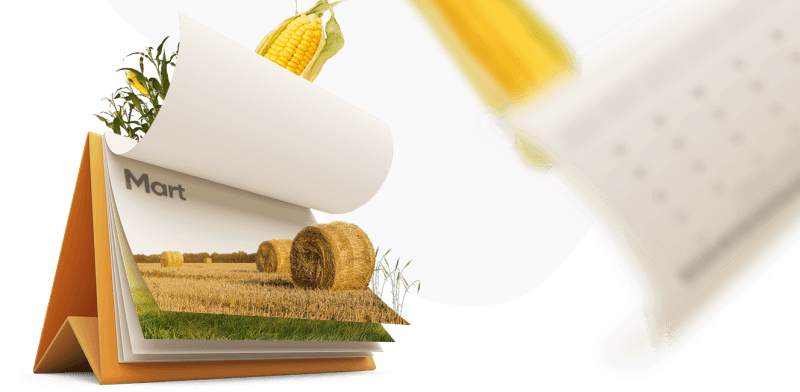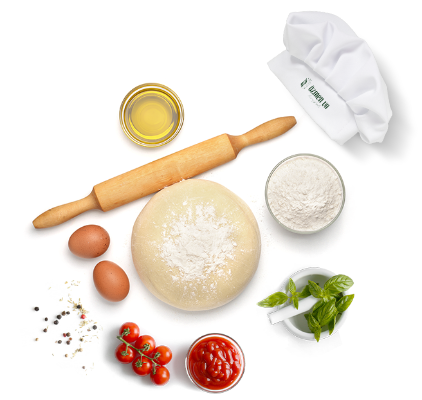- Tillage and fertilization continues for all kinds of field agriculture. The soil that binds the cream is broken with a harrow and crowbar and tillering is achieved in the grains. The second nitrogen application is made in the areas where autumn planting is done.
- Summer cereal planting continues. In places where the climate is suitable, in addition to planting tobacco seedlings and cotton, the planting of meadow-pasture and forage crops is also started.
- While life water is given to areas that can be irrigated, excess water in the fields is drained.
- Struggle should be given importance in the grains planted for autumn.

March
Field Agriculture
Orcharding
- Fields and old plants where fruit can be grown in bulk are plowed and fertilized.
- Planting of saplings continues in many areas.
- Vaccination studies continue with the pruning of the fruit. Since stone fruits can bloom in warm places, care should be taken to protect them from frost. Newly established orchards are brought to life.
- Studies against various damages and diseases should be continued. Be especially wary of the pear eye worm, the puseron and the olive moth.
- Citrus harvest continues. Citrus packaging and marketing continues.
Vegetables
- Harvesting of early tomatoes, cucumbers, zucchini and similar vegetables in greenhouses continues.
- The first staggering process of the vegetables planted in warm and warm pillows is performed.
- Soil cultivation continues in vegetable gardens and the soil is prepared for planting by fertilizing.
- Tomatoes, peppers, eggplants are started to be taken into the pans.
- Surprise and shuttered seedlings are given life water. If there is no confusion, hoeing should be done. Hoeing starts especially in broad beans and peas.
- The fight against pests and diseases continues in the garden, greenhouse, hot and warm pillows.
Viticulture
- Tillage and fertilization continues in the places where vineyards will be established and in the old facilities.
- Rooted and rootless rot planting is continued.
- In areas where there is no danger of frost, vineyard pruning is terminated within a month. Where there is danger, frost is expected to pass. Vaccination begins in places with a relatively mild climate and in temperate regions.
- Diseases and pests are combated, in cold regions the vines are washed with a burgundy slurry before the bud bursts.
Livestock
- In some places, there is a slowdown in barn work as they take the animals out to pasture. However, barn cleaning, ventilation and disinfection studies continue in Eastern Anatolia Regions.
- The animals taken to the pasture are also given additional feed. The feeding and care of the animals in the barn continues.
- Care should be taken about ongoing birth studies.
- In the regions where grazing is started in the pastures, improvement works are carried out on the pastures. Especially by grazing alternately, their pastures can be protected and benefited for a longer time.
- When the spring season begins, a protective vaccine is made against possible epidemics and pests.
Poultry Farming
- Maintenance, cleaning and disinfection continues in the hens. The windows of the coops are closed with wire to prevent the entry of animals and birds such as cats, dogs, foxes and marten.
- Since it is the incubation period, the studies that need to be done for this purpose are given importance. Production is carried out by selecting suitable eggs for reproduction.
- From a nutritional point of view, special attention is paid to newly hatched chicks and a variety of feed is chosen that allows them to grow.
- In order to fight chicken diseases, preventive vaccinations are made and preventive drugs are continued. This is especially important for chicks.
Beekeeping
- Since the bees will go out in some regions, the hive maintenance work continues accordingly. The frames of the hives are repaired. Moldy and broken frames are replaced with new ones.
- Beekeeping equipment should always be kept in working condition as the maintenance work will increase as the bees start honey collection activities.
- Spring cleaning is done and necessary drugs are used to prevent diseases in the hives.



